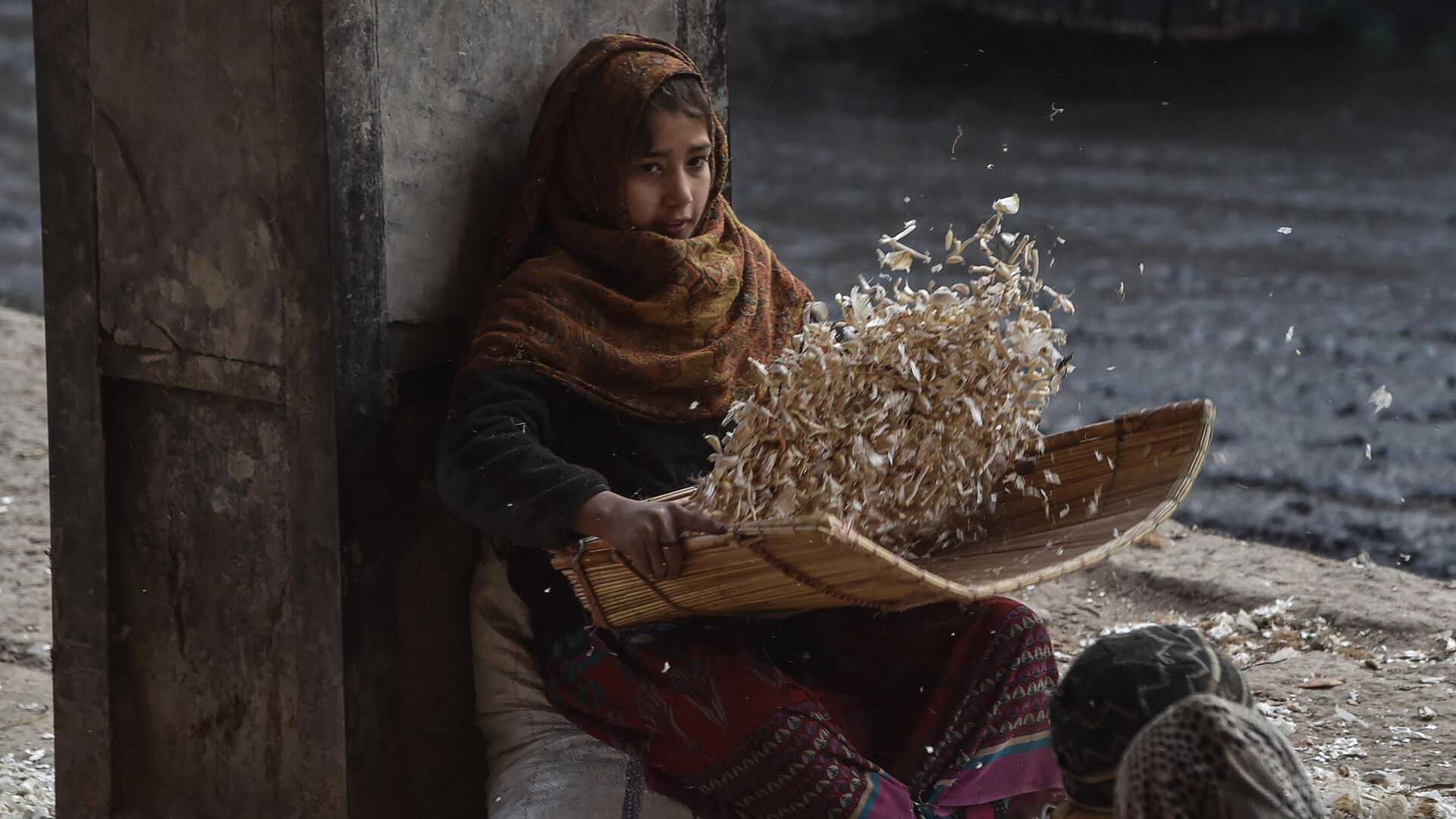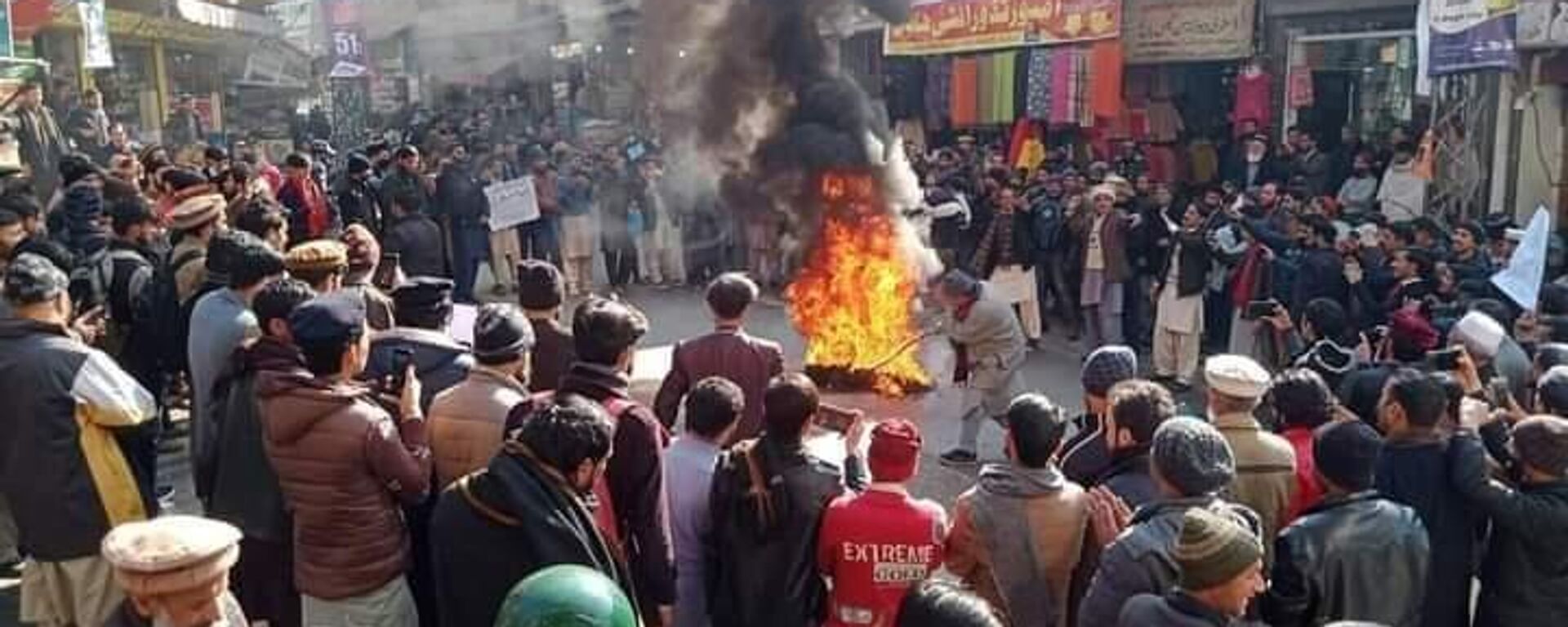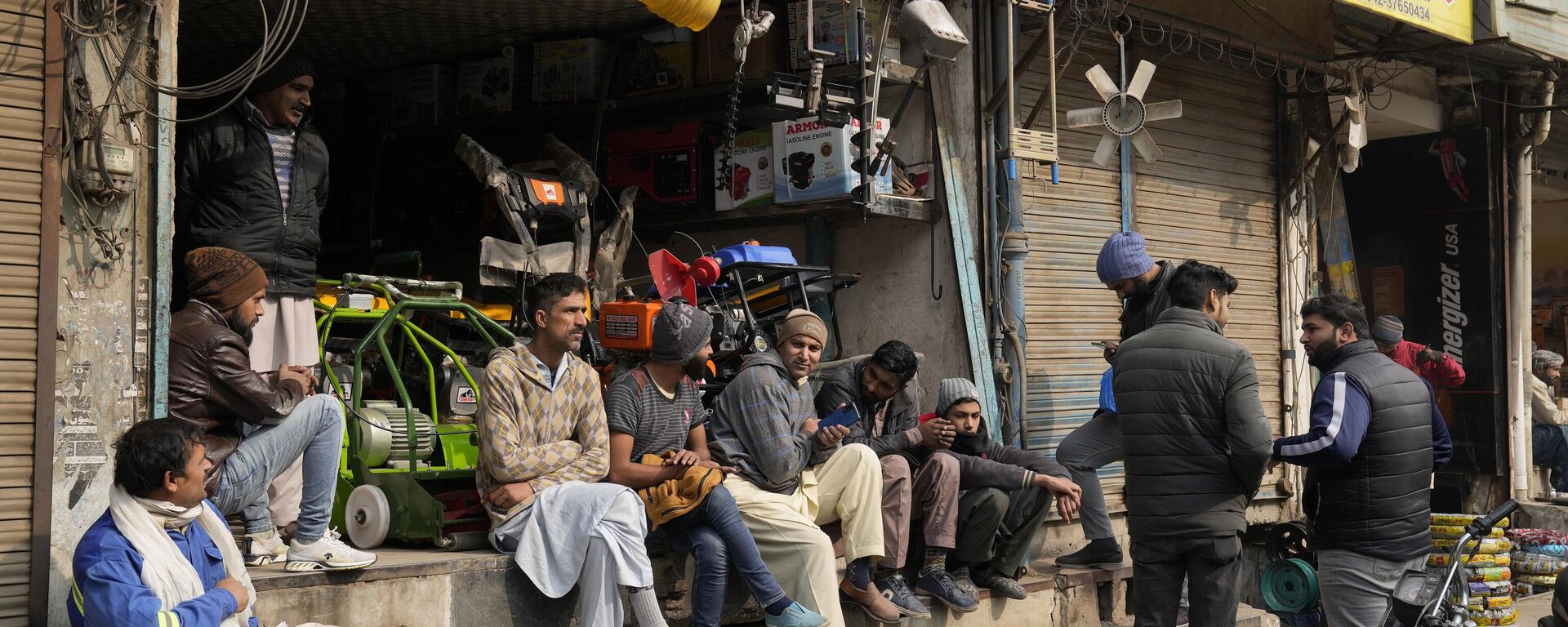Exploitation of Innocence: Growing Child Labor in Pakistan Raises Alarm
19:11 24.01.2023 (Updated: 19:21 24.01.2023)

© AFP 2023 ARIF ALI
Subscribe
A struggling economy as well as rising food and fuel prices have forced many families to send their children out in search for work instead of to the classroom.
Asia is home to over 62 million children involved in child labor, with 28 million of them involved in the worst forms of it, such as domestic work, garbage pickers and auto workshop employees. These children are exposed to toxic chemicals, infections, injuries, animal bites, and physical and sexual abuse, among other issues.
Child labor has been prevalent in Pakistan for decades, with 10-15 million children trapped in its vicious cycle. Some reports suggest that this number is higher, especially after the pandemic which further raised the number of children involved in child labor.
Trapped in a Nightmare
A large proportion of Pakistani children can be found working in the agriculture sector, while many others move to urban areas to work in industries or as domestic help. The money they earn is usually sent back to their families in villages, hence it is impossible for them to save and improve their future prospects.
Child labor occurrs all across Pakistan in very dangerous sectors like glass bangle manufacturing, cleaning of oil tankers, poultry farms, motor workshops, brick kilns and small hotels.
The children remain trapped in their menial jobs well into their adulthood, which prevents them from acquiring any education.
In case of the girls, they often work as babysitters and house cleaners for middle-class families in cities from a very young age until they are fifteen or sixteen. After that they are married off to someone in their village. As such, they have no chance to receive an education or make any life choices by themselves.
Sputnik reached out to Mumtaz Mughal, director of programs at Aurat Foundation, to discuss the issue of child labor in Pakistan.
Established in 1986 as a national, non-profit, non-governmental organization under the Societies Registration Act 1860, Aurat Foundation is committed to creating widespread awareness and commitment for a just, democratic and caring society in Pakistan. Over the years it has been recognized nationally and internationally as one of the leading institutions creating, facilitating and strengthening civil society groups.
"Poverty, illiteracy, population growth rate and lack of awareness are the major reasons for the prevailing child labor in Pakistan. As 65% of the country's population lives on both sides of the poverty line, leading to the issue of child labor in low-income families," Mughal said.
According to her, most of the 25 million out-of-school children fall prey to child labor in the country.
"The poor education facilities and corporal punishments are adding to the numbers as many children drop out of their primary and secondary education. Lack of awareness of children's rights and desensitization to negative impacts on the children's physical and mental health are other main reasons for the continued child labor in Pakistan," Mughal explained.
How to Curb the Menace?
Talking about some of the strategies that can be implemented to reduce the issue of child labor in the country, Mughal argued that there is a dire need for a multi-pronged approach and actions at all levels to resolve the issue.
"The constitutional right of free and compulsory education for all children should be implemented in the true letter and spirit. A massive drive should be initiated to enroll the out-of-school children and measures should be taken to ensure that there are no drop-outs," the director told Sputnik.
Looking at further strategies, she said that the existing laws against child labor should be implemented in Pakistan. The social safety nets should be extended to poor families and must be linked with their commitments not to engage children in labor.
"The worst form of child labor must be dealt [with] strictly according to the existing laws," Mughal added.
Currently government inaction and failure to implement laws have allowed employers to continue hiring children without facing any consequences.
Trade Sanctions and Low Development Prospects
Last year, the World Trade Organization imposed sanctions and trade barriers on countries using child labor. Under these regulations, different countries imposed measures on Pakistan due to the country’s failure to end child labor. The sanctions have harmed Pakistani manufacturers, their employees and the country’s economy.
However, employment of children in households is still greatly prevalent across Pakistan. That stops the country’s overall ability to improve literacy rates and development prospects.
Talking about whether the local NGOs and international organizations have been successful in reducing child labor in Pakistan, Mughal said, "So far, international organizations and NGOs have failed to curb the menace for many reasons."
"The magnitude of the issue is so massive that it needs a state-level response. The NGOs are playing their role in awareness raising, however, since the issue is linked with poverty, illiteracy and population growth, it requires changes in the existing laws and policies and a strong political will to implement them," the director explained.
She further said that child labor is a violation of the fundamental rights and principles enshrined in the Convention on the Rights of the Children.
"The children in Pakistan are facing the extreme risk of the worst forms of child labor including bonded, domestic and forced labor. The state should work together with civil society to respond to this challenge."
International Labour Organisation (ILO) officials have requested local authorities to ensure compliance with the international conventions on child and forced labor. Pakistan has affirmed several core conventions related to child labor, but the issue is still plaguing society and threatens the future of millions of children.



